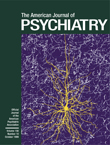The importance of cultural issues in the assessment and treatment of all psychiatric disorders is often given short shrift in training programs and research portfolios, despite the fast-growing numbers of new immigrants and people of color in the U.S. population. Furthermore, when cultural issues in psychiatry are considered, psychotic and mood disorders are often the focus, with little work published in the area of anxiety disorders.
This edited volume is a collection of individually written chapters with a common theme; the book grew out of a one-day symposium on the same topic in New York City in 1995. The book’s core is a series of in-depth chapters focused on different ethnic groups (Hispanic Americans, Caribbean Americans, Asian Americans, Orthodox Jews, African Americans, and Asian-Indian Americans); their views of mental illness, anxiety, and mental health practitioners; and how these views affect their symptom presentation and orientation to treatment. The opening and closing chapters are broader reviews of the general topic area of culture and anxiety. There are also chapters on epidemiology, treatment, and psychopharmacology and ethnicity.
Despite the distinct cultural orientations presented, some strikingly similar themes emerge. Many of these cultures still revere and value institutions, such as the family and religion, whose importance in the broad U.S. population has deteriorated if not vanished. They have some surprisingly similar values, such as the importance of elders and a deemphasis of the role of the individual, values that have vanished in our often narcissistic and youth-oriented culture. Many of these cultural groups have indigenous treatment practices that grow out of a shared world view, although there seems little commonality in the multiplicity of viewpoints and individual agendas found in the “dominant” culture in the United States. A number of chapters make it abundantly clear that the reliability and validity of our DSM diagnoses in people from these other cultures are highly questionable. This is further highlighted by the book’s descriptions of individual “culture-bound” syndromes, which cannot easily be mapped to discrete DSM diagnoses but cut a wide swath across several of the mood and anxiety disorder categories (e.g., ataque des nervios and hwa byung).
From the core chapters, I found many thought-provoking pearls that are of definite interest to the clinician treating patients with anxiety disorder. Hispanic patients focus on keeping mental health problems “in the family,” which, along with their somatic orientation, may make them more amenable to pharmacological/medical treatment than to psychotherapeutic approaches. African American patients with panic and comorbid hypertension, a common combination, often view the former as a symptom of the latter. They also have a significant distrust of psychiatrists and psychologists rooted in the horrible misuse of diagnostic labeling in the past in the service of maintaining the institution of slavery. The incidence of social phobia may be higher in Japanese cultures because of their increased sensitivity to situationally prescribed codes of conduct. One form of social phobia in Japan is marked by anxiety about causing anxiety in others, in contrast to the self-focused shame that characterizes social phobia in the United States.
Other of the individual ethnic group chapters make important points that are relevant to most ethnic groups. These include an in-depth identification of institutional and individual barriers to culturally appropriate treatment in the chapter on Asian Americans; an extensive case history discussion of how cognitive behavior treatment of Orthodox Jewish patients needed to be modified to be effective; and discussion of “treatment resistance” in the chapter on Caribbean Americans. The psychopharmacology and ethnicity chapter recapitulates the limited data on ethnic variations in the cytochrome enzyme system and their metabolic implications. This chapter has more interesting things to say about cultural effects on medication compliance and placebo effects, two areas that probably are far more important factors in determining treatment outcome. A concluding chapter provides a scholarly review of the place of culture in the experience of affect, how culture affects the various forms of anxiety, and how awareness of these factors can refine cognitive and psychological treatment techniques.
This book will be of most interest to practitioners working with patients with anxiety disorder from different cultures. Given the paucity of available introductory-level information, it is probably one of the best, most readable places to start learning about this. However, as a number of the chapters emphasize, the area is quite complex, and the more detailed sources that are readily available and cited in the book should be pursued by clinicians interested in further increasing their awareness of cultural issues.

